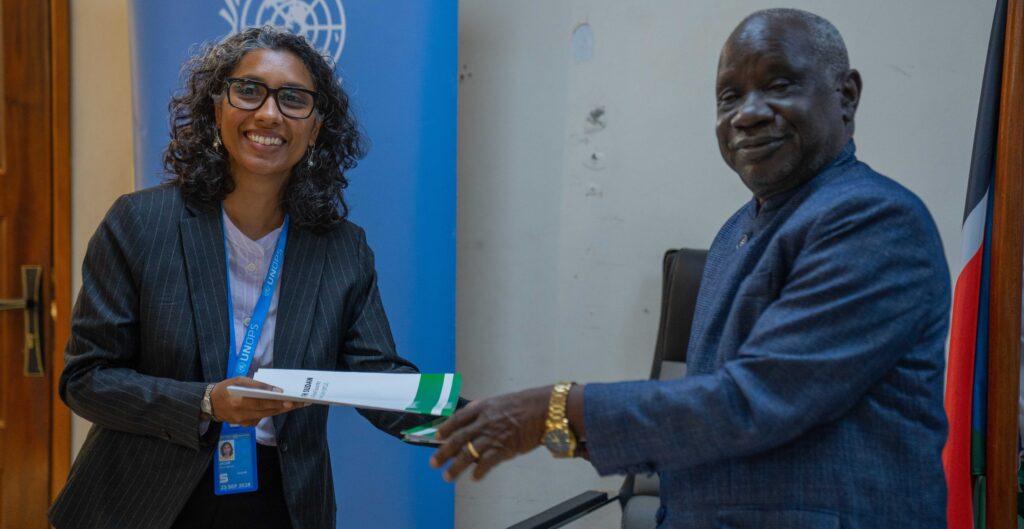The United Nations Office for Project Services (UNOPS) and the Government of South Sudan signed a $25.7 million agreement on Monday to implement the South Sudan Livelihoods and Resilience Project (SSLRP).
Funded by the International Fund for Agricultural Development (IFAD), the project aims to benefit more than 93,700 households across five states: Central Equatoria, Eastern Equatoria, Jonglei, Lakes, and Western Bahr el-Ghazal.
The government-led initiative will focus on vulnerable groups, including internally displaced persons, returnees and people with disabilities. About 60% of the beneficiaries are expected to be women and 70% youth.
The project aims to strengthen food security, improve resilience to climate shocks, boost market access and develop community infrastructure.
UNOPS will serve as a third-party implementation partner, supporting the ministry in two key areas: community-driven development planning and managing a Community Agriculture Investment Fund.
Activities will include mobilizing communities, providing in-kind grants for agriculture, rehabilitating feeder roads, building climate-smart infrastructure and offering training to local stakeholders.
“The project’s community infrastructure development component is both lacking and essential across the region,” said South Sudan Minister of Agriculture and Food Security Abdelbagi Akol Agany. “It aims to provide crucial, climate-smart infrastructure that enhances agricultural productivity, connectivity, and economic resilience.”
The infrastructure work is designed to connect agricultural areas to urban markets, facilitating the flow of goods, he said.
Project Manager Hakim Luka Yatta said the agreement reflects the ministry’s commitment to “enhancing inclusive governance for resilient rural livelihoods.” He said the project will address chronic poverty and food insecurity while promoting community-driven decision-making.
Petronella Halwindi Kasaka, the UNOPS country manager in South Sudan, reaffirmed the organization’s commitment to the project.
“The project would be delivered per the signed agreement,” Kasaka said, expressing gratitude to the ministry for selecting UNOPS as its partner.
The ministry said it is committed to the project’s success with a focus on climate resilience and inclusive development.




